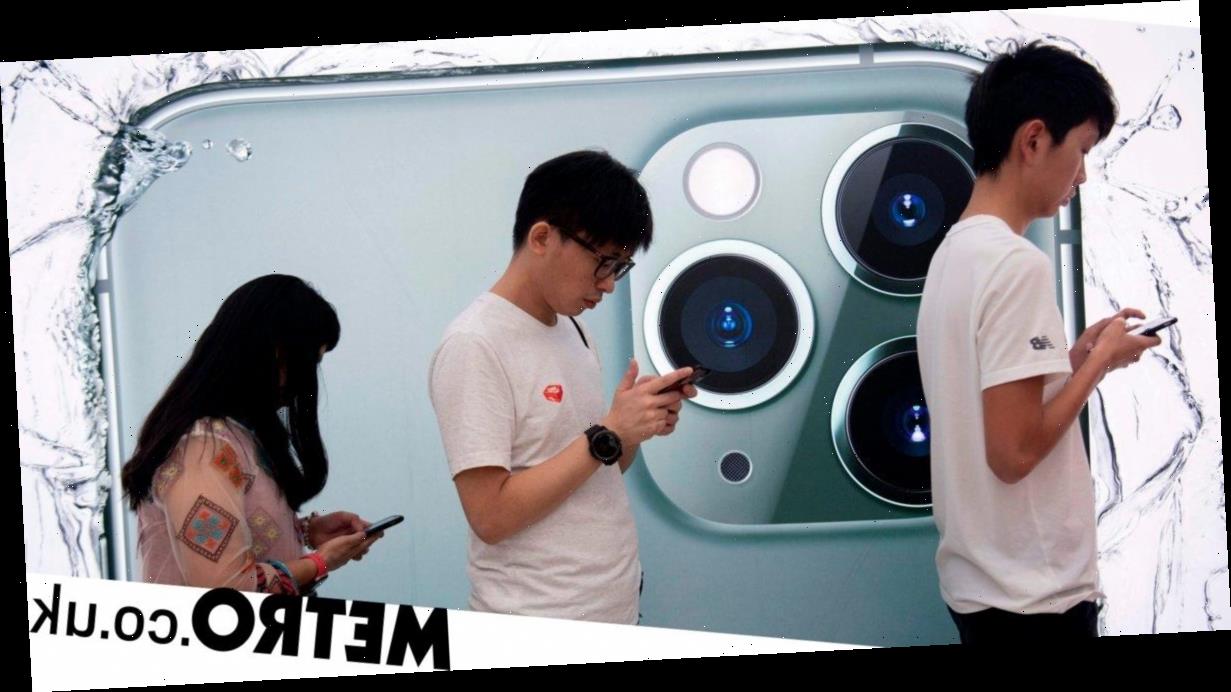Apple has removed from its online store a smartphone app that allows Hong Kong activists to report police movements after an official Chinese newspaper accused the company of facilitating illegal behaviour.
The tech giant became the latest company to come under pressure to take Beijing’s side against anti-government protesters when the Communist Party newspaper People’s Daily said the HKmap.live app ‘facilitates illegal behaviour’.
The newspaper asked: ‘Is Apple guiding Hong Kong thugs?’
The Hong Kong demonstrations began over a proposed extradition law and expanded to include other grievances and demands for greater democracy. Apple said in a statement that HKmap.live was removed because it ‘has been used to target and ambush police’ and ‘threaten public safety’.
It said that violated local law and Apple guidelines.
HKmap.live allows users to report police locations, use of tear gas and other details that are added to a regularly updated map.
Another version is available for smartphones that use the Android operating system.
The Apple statement said: ‘We have verified with the Hong Kong Cybersecurity and Technology Crime Bureau that the app has been used to target and ambush police, threaten public safety, and criminals have used it to victimise residents in areas where they know there is no law enforcement.
‘This app violates our guidelines and local laws, and we have removed it from the App Store.’
A Twitter account linked to the app posted a statement denying it endangered police or Hong Kong residents.
It said the app collects information from its users and public sources and does not ‘solicit, promote or encourage criminal activity’.
In Hong Kong, users of HK Maps said the application helped them steer clear of police patrols whose riot control methods and policing during the crisis have been widely criticised as heavy-handed, undermining public support for what long was considered one of Asia’s best police forces.
Office worker Acko Wong, 26, said he downloaded the app to help him avoid ‘danger and traffic’ during the many protests that have shaken the city.
He said the argument that the app could be used to ambush police and could point criminals to areas where police are not stationed ‘does not make sense’.
‘How do you ambush a group of police with equipment and gear like helmets and shields?’ he asked.
Apple phone user Canny Ng said Apple’s decision was unacceptable and would make her think twice about buying more of the company’s technology.
Although she had not downloaded the app before it was removed, she has consulted the web-based version of HK Maps that is still live.
With a six-month-old baby boy at home, Ms Ng said she has not joined the protests. But the crisis has left her afraid of the police, making HK Maps ‘quite useful’, she said.
‘I cannot accept what the police are doing right now,’ she said.
That the app even exists ‘means that most of the Hong Kong people, maybe they’re really afraid of the police nowadays,’ she said.
‘Even myself, I just want to find a way that I won’t see any police, especially when I’m wearing black. You’re worried that, oh, maybe they will check your ID.’
Activists complain Beijing and Hong Kong leaders are eroding the autonomy and Western-style civil liberties promised to the former British colony when it returned to China in 1997.
People’s Daily warned Apple’s reputation with Chinese consumers might suffer.
‘Apple needs to think deeply,’ the newspaper said.
Brands targeted in the past by Beijing have been subjected to campaigns by the entirely state-controlled press to drive away consumers or to disruptive investigations by tax authorities and other regulators.
China has long been critical to Apple’s business. The mainland is Apple’s second-biggest market after the United States but chief executive Tim Cook said it will eventually become number one.
Apple, which has its headquarters in Cupertino, California, is also an important asset for China. Most of its iPhones and tablet computers are assembled in Chinese factories that employ hundreds of thousands of people.
Source: Read Full Article

